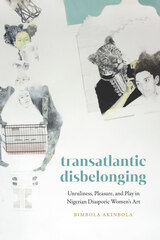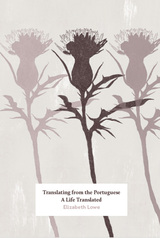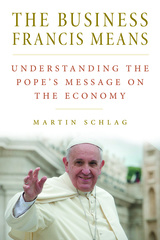
The Business Francis Means aims to break through these walls, showing that Pope Francis has something to say to all Christians. His message, taken as a whole, keeps us from dividing the “seamless garment” of Christ: he reminds the conservatives of the problems of inequality and poverty, and the liberals that social justice is not enough – the Church is the bride of Christ, not a social institution or an NGO.
Monsignor Martin Schlag summarizes and explains the message of Pope Francis on business and the economy in this compact volume. The Business Francis Means will be of great interest to the Catholic layperson, especially one involved in political or economic life.

Moral theologians, defense analysts, conflict scholars, and nuclear experts imagine a world free from nuclear weapons
At a 2017 Vatican conference, Pope Francis condemned nuclear weapons. This volume, issued after the 60th anniversary of the Cuban Missile Crisis, presents essays from moral theologians, defense analysts, conflict transformation scholars, and nuclear arms control experts, with testimonies from witnesses. It is a companion volume to A World Free from Nuclear Weapons: The Vatican Conference on Disarmament (Georgetown University Press, 2020).
Chapters from the perspectives of missile personnel and the military chain of command, industrialists and legislators, and citizen activists show how we might achieve a nuclear-free world. Key to this transition is the important role of public education and the mobilization of lay movements to raise awareness and effect change. This essential collection prepares military professionals, policymakers, everyday citizens, and the pastoral workers who guide them, to make decisions that will lead us to disarmament.
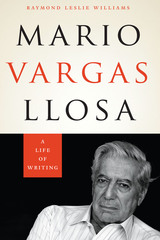
Awarded the Nobel Prize in 2010 at the age of seventy-four, Peruvian writer Mario Vargas Llosa has held pivotal roles in the evolution and revolutions of modern Latin American literature. Perhaps surprisingly, no complete history of Vargas Llosa’s works, placed in biographical and historical context, has been published—until now. A masterwork from one of America’s most revered scholars of Latin American fiction, Mario Vargas Llosa: A Life of Writing provides a critical overview of Vargas Llosa’s numerous novels while reinvigorating debates regarding conventional interpretations of the work.
Weaving analysis with discussions of the writer’s political commentary, Raymond Leslie Williams traces the author’s youthful identity as a leftist student of the 1960s to a repudiation of some of his earlier ideas beginning in the 1980s. Providing a unique perspective on the complexity, nuance, and scope of Vargas Llosa’s lauded early novels and on his passionate support of indigenous populations in his homeland, Williams then turns his eye to the recent works, which serve as a bridge between the legacies of the Boom and the diverse array of contemporary Latin American fiction writers at work today. In addition, Williams provides a detailed description of Vargas Llosa’s traumatic childhood and its impact on him—seen particularly in his lifelong disdain for authority figures—as well as of the authors who influenced his approach, from Faulkner to Flaubert. Culminating in reflections drawn from Williams’s formal interviews and casual conversations with the author at key phases of both men’s careers, this is a landmark publication that will spark new lines of inquiry into an intricate body of work.

A call to reform Catholic health care ethics, inspired by the teachings of Pope Francis
Since its first edition in 1948, the US Conference of Catholic Bishops’ Ethical and Religious Directives for Catholic Health Care Services (ERD) has guided Catholic institutions in the provision of health care that reflects both the healing ministry of Jesus and the Church’s understanding of human dignity. However, while the papacy of Pope Francis and the clerical sex-abuse scandal both profoundly impacted the Catholic Church, the latest edition of the ERD does not address or reflect these transformations.
Now for the first time, Todd A. Salzman and Michael G. Lawler present an extended critical commentary on the 2018 ERD. They argue that it is problematic in a number of ways. First, the revised ERD continues to prioritize a rule-based over a personalist-based ethical method, with an emphasis on absolute norms that proscribe specific medical acts. Further, it does not take into account Pope Francis’s transforming ecclesiological, methodological, and anthropological visions, neither internally in Catholic health care institutions nor externally in collaborations between Catholic and non-Catholic health care institutions. Finally, the revised ERD provides no evidence that the bishops grasp how the clerical sex-abuse scandal and its cover-up have fundamentally undermined episcopal authority and credibility.
Salzman and Lawler propose new ways forward for US Catholic health care ethics that prioritize human dignity as their guiding principle. As there is pluralism in Catholic definitions of human dignity, there must be pluralism in the norms and directives that facilitate realizing human dignity. Pope Francis’s emphasis on the virtues of mercy and care should move the ERD forward from a focus on absolute norms in medical ethics to a focus on virtues and principles to guide both patients and health care professionals in their discerned conscientious health care decisions.
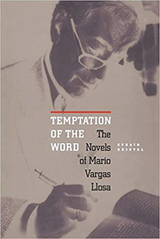
Temptation of the Word offers an ambitious and careful reading of the creative process--the origin of themes and the development of literary techniques--that Mario Vargas Llosa has brought to each of his novels, published through 1996. To understand the novelist's intellectual environment, Efrain Kristal analyzes the entire corpus of Vargas Llosa's writings, his literary influences in several languages, his intellectual biography, and his political activism, all in the light of the evolving political turbulence of his times and his own changing concept of literature.
READERS
Browse our collection.
PUBLISHERS
See BiblioVault's publisher services.
STUDENT SERVICES
Files for college accessibility offices.
UChicago Accessibility Resources
home | accessibility | search | about | contact us
BiblioVault ® 2001 - 2025
The University of Chicago Press



